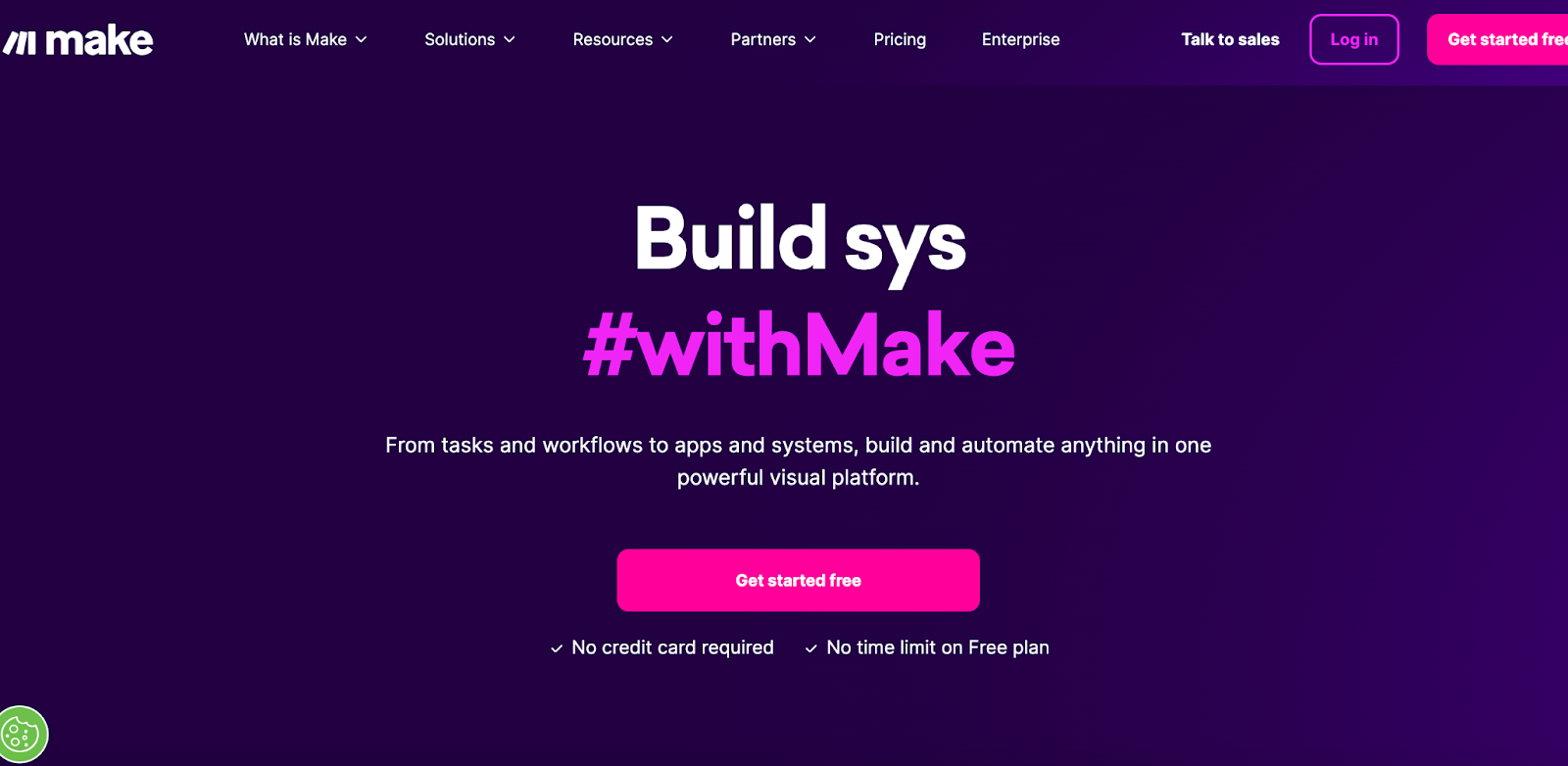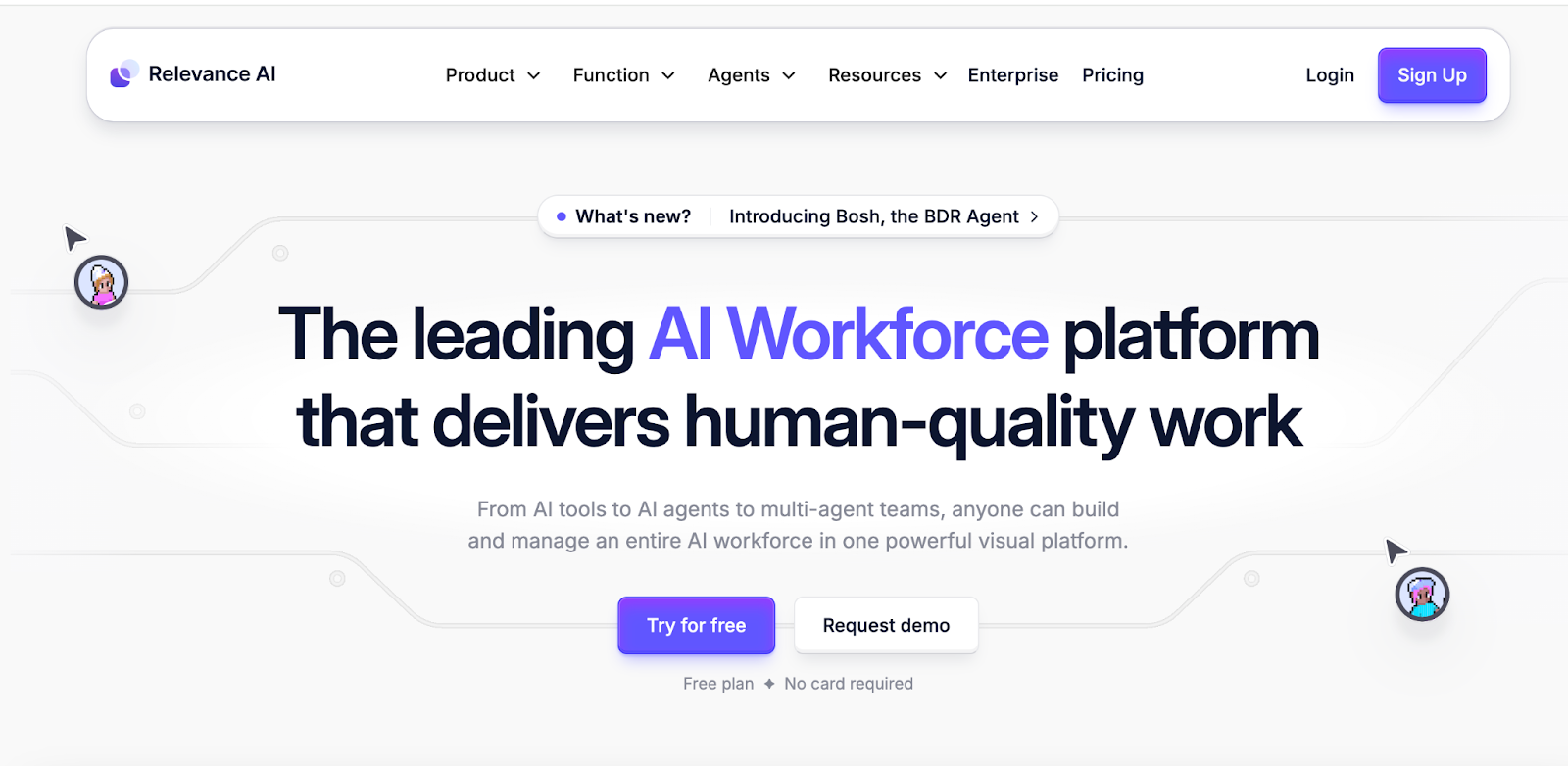In This Article

Remember a long, long time ago when business owners were asking “Do I need a website?” or remember when you were wondering if social media was a fad or here to stay? Remember that?
Yeah. Well, AI is the new internet. And AI agents are the new social media. And if you’ve learned anything from the internet, websites, and social media is that you simply HAVE to get on board. Technology is moving forward and if you don’t move with it and at least understand how it works, you’re going to regret it because you’ll be so far behind that you won’t be able to catch up.
Let’s cut to the chase: AI is here, and it’s not just a trend—it’s a seismic shift in how we do business. But here’s the kicker: to make AI work for you, clarity is non-negotiable. That means knowing your business inside out: your mission, vision, and ideal customer. You need to be crystal clear about how your customers buy, how you sell, and how you manage the customer experience. Even internally, you must define what you want and how you want it.
Why? Because AI amplifies what’s already there. If your processes are a mess, AI won’t magically fix them—it will automate chaos. But if you’re clear and intentional, AI becomes the ultimate sidekick, automating the grind so you can focus on strategy and creativity. Let’s explore how AI is revolutionizing business and the tools that are leading the charge.
What Are AI Agents?
To understand AI agents, think of them not as robots following pre-set instructions but as digital colleagues who strategize and adapt like humans. Imagine having a super-intelligent assistant who’s not only great at juggling data but also at learning and improving over time. While traditional automation tools like Zapier and Make are great for task execution based on fixed rules, AI agents independently plan and achieve objectives.
With AI agents, you don’t program all the steps. Instead, you assign a goal—say, expanding your social media reach—and these agents autonomously create strategies, write posts, and tweak approaches as they see what works best. They operate as if the term “manual input” is not even in their vocabulary!
What You Need to Have BEFORE You Create AI Agents
So, AI agents are literally replicants of you, what you know, and how you make decisions. And that means, that you have to be very clear about what you do, how you do it, and why you do it the way you do.
In short, creating an AI agent is a lot like sitting down with a super smart intern or new employee and training them on your process, your systems, and most importantly, your decision making processes.
I’m going to say this again and another way:
AI agents thrive on clarity. You need to have well-defined goals, clear processes, and keen decision points already in place. Think of it as setting rules for this autonomous playground.
1. Goals Before Gadgets: Define specific marketing outcomes you want to achieve.
2. Processes That Pop: Have clear, efficient processes that can be enhanced by AI agents.
3. Data Delight: Make sure your data is organized and ready for your new AI buddies to access and analyze.
What’s the Difference Between AI Agents and Automation
I’ll bet you read this and thought “This sounds a lot like automation – what’s the difference?” That was a BIG question for me too.
Here’s a simple way to look at it:
All AI agents are automation, but automations are not AI agents.
- AI Agents make decisions in data-based environments. The key phrase here is “make decisions”. When creating AI agents, you will feed (teach), program the AI with detailed particulars around your business. This includes goals, objectives, and messaging. But you will also have to know specifically what to do in certain situations – think “If this, then that” instructions.
- Automations make decisions based on rule-based environments. Automations also run on “if this, then that” patterns, but they do NOT make complex decisions.
Here’s a simple table I created to show the differences between AI agents and Automations:
| Aspect | AI Agents | Automations | Use Case Examples |
| Decision-making | Autonomous, can make complex decisions | Rule-based, follows predefined instructions | AI Agent: Self-driving cars adapting to traffic conditionsAutomation: Traffic light systems following preset timing |
| Adaptability | Highly adaptable to new scenarios | Limited to programmed tasks | AI Agent: Chatbots handling diverse customer queriesAutomation: Automated phone menu with fixed options |
| Learning | Can learn and improve over time | Does not learn or improve independently | AI Agent: Recommendation systems refining suggestions based on user behaviorAutomation: Scheduled social media post publisher |
| Task Complexity | Handles complex, non-deterministic tasks | Best for simple, repetitive tasks | AI Agent: Financial market analysis and predictionAutomation: Automated bank transfers on fixed dates |
| Data Handling | Can work with unstructured data | Requires structured inputs | AI Agent: Natural language processing for sentiment analysisAutomation: Data entry from standardized forms |
| Execution Speed | May be slower due to decision-making processes | Fast and efficient for defined tasks | AI Agent: Complex game-playing AI (e.g., AlphaGo)Automation: High-speed product sorting in warehouses |
| Predictability | Less predictable, may produce unexpected outcomes | Highly predictable and consistent | AI Agent: Creative AI for generating art or musicAutomation: Assembly line robots performing repetitive tasks |
What AI Agents Can Do for Your Business
AI agents are reshaping what’s possible by automating repetitive tasks and freeing you up to focus on what truly matters. Here’s what they bring to the table:
Task Automation
AI agents excel at handling repetitive and time-consuming tasks. Whether it’s processing invoices, managing calendars, or analyzing customer data, they do it faster and more accurately than humans ever could.
Improved Productivity
By delegating mundane tasks to AI, your team can focus on creative and strategic projects that drive growth. Think of AI as your digital intern—except it doesn’t need coffee breaks or training.
Cost Reduction
With fewer errors and faster processes, AI not only saves time but also reduces costs. Imagine an assistant that speeds up your workflows while keeping your budget in check.
Data-Driven Decision Making
AI agents analyze mountains of data at lightning speed, delivering actionable insights. Whether you’re predicting trends or optimizing inventory, they make decision-making faster and smarter.
Enhanced Customer Experience
From personalized product recommendations to real-time support, AI elevates customer service. It’s like having a concierge for every customer, 24/7.
24/7 Availability
AI agents don’t sleep, which means your business can run smoothly around the clock. They can handle multiple tasks simultaneously, ensuring nothing falls through the cracks.
The Limitations of AI: What It Can’t Do (Yet)
While AI is powerful, it’s not a magic wand. Here’s where it falls short:
Strategic Thinking
AI can process data, but it can’t brainstorm your next big idea or craft a marketing strategy. Those creative leaps remain firmly in the human domain.
Emotional Intelligence
AI lacks the ability to interpret human emotions or navigate complex interpersonal dynamics. Whether it’s a delicate negotiation or understanding subtle feedback, this is where humans shine.
Ethical Decision-Making
AI can follow programmed rules, but it can’t make nuanced ethical choices. Moral dilemmas require human judgment and values.
Tools That Are Changing the Game
Not all AI tools are created equal. Whether you’re automating workflows or scaling content creation, the right tool can make all the difference. Let’s look at three standout platforms: Make.com and Relevance.
Best Automation Tool for AI: Make.com

Make.com (formerly Integromat) is a powerhouse for workflow automation.
- Key Features: Integration with over 2,000 apps, a visual drag-and-drop interface for creating workflows, and advanced options like error handling and data stores.
- Why Use It: Perfect for businesses that need customizable solutions to manage complex processes.
Best Tool to Build AI Agents: Relevance.ai

Relevance AI is a powerful platform that enables businesses to create and manage AI-powered tools and agents without coding13. It serves as a home for the “AI Workforce,” allowing subject-matter experts to design AI tools, agents, and multi-agent teams to streamline various business processes.
Key Features
- AI Agent Creation: You can build highly-skilled AI agents that follow unique company processes and integrate with existing tech stacks.
- No-Code Tools: The platform offers a no-code environment for building AI tools, making it accessible to non-technical users.
- Task Automation: Relevance AI can automate repetitive tasks such as lead generation, personalized outreach, and sales automation.
- Multi-Agent Systems: The platform supports the creation of complex workflows involving multiple AI agents working together or reporting to a manager agent.
- Integration Capabilities: Relevance AI offers native integrations with various software, including Gmail and CRMs, allowing for automated triggering of AI agents.
Use Cases
- Lead Generation: Automatically identify and qualify leads.
- Personalized Outreach: Tailor messaging to individual leads for increased engagement.
- Market Research: Utilize pre-built agent templates like Marco for qualitative data coding and survey response analysis.
- Customer Support: Create AI chatbots to assist users in determining product suitability
While Relevance AI is powerful for task automation, it may not be the ideal solution for creating conversational chatbots. The platform is particularly beneficial for small to mid-sized businesses looking to enhance their sales processes and overall efficiency
Training Your AI: The Secret to Success
AI isn’t a “set-it-and-forget-it” solution—it needs guidance to perform at its best. Here’s how to train it effectively:
Define Clear Objectives
Before you deploy AI, clarify its role. What tasks will it handle? What outcomes do you expect? The clearer your instructions, the better the results.
Use Quality Data
Garbage in, garbage out. Feed your AI clean, relevant, and well-structured data to ensure it learns and performs accurately.
Choose the Right Tools
Not all AI platforms are created equal. Evaluate your options based on your business needs, data privacy concerns, and scalability.
Be Specific
When training AI, concise and clear instructions are key. Ambiguity leads to errors, so spell out what you need in plain terms.
Prioritize Security
Ensure your AI operates within a framework that protects sensitive data. Encryption and anonymization aren’t just optional—they’re essential.
Monitor and Refine
AI requires ongoing attention. Regularly review its performance, gather feedback, and tweak its training to keep it aligned with your goals.
Why Clarity Is the Foundation of AI Success
AI is like a magnifying glass for your business. It amplifies what you’re already doing—good or bad. That’s why clarity is crucial. Without a clear mission, processes, and goals, AI will simply automate inefficiencies. But if you approach it with intention, it becomes a force multiplier for your business.
So, get clear about what matters most in your business. Define your vision. Sharpen your processes. Then let AI take care of the grind while you focus on strategy, creativity, and growth. This is the future—and it’s yours for the taking.